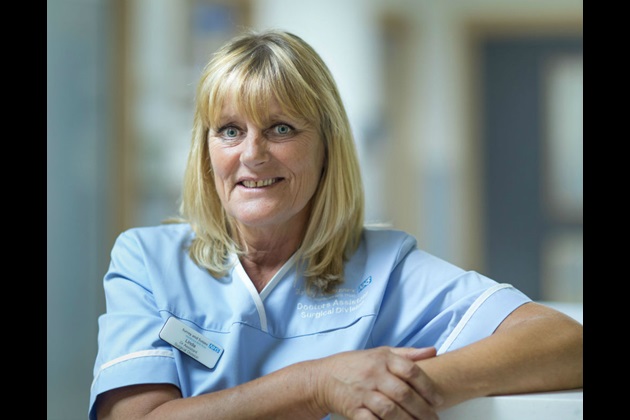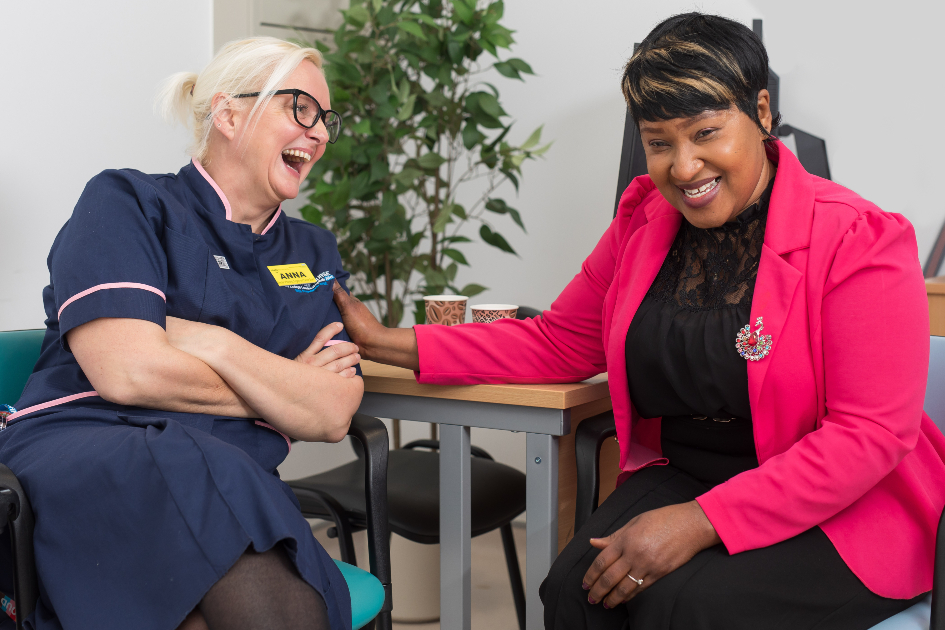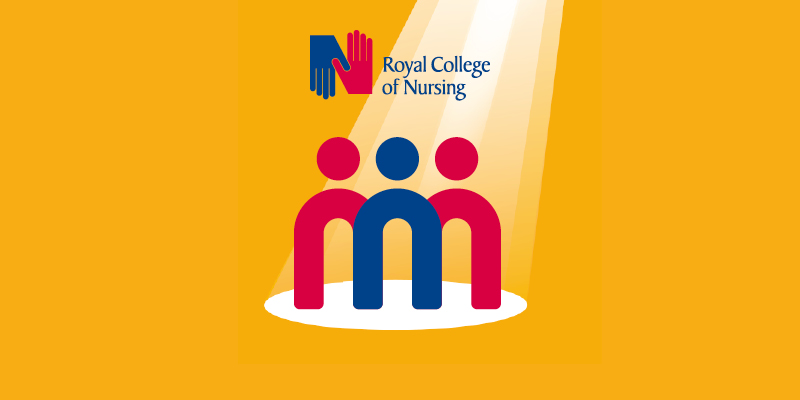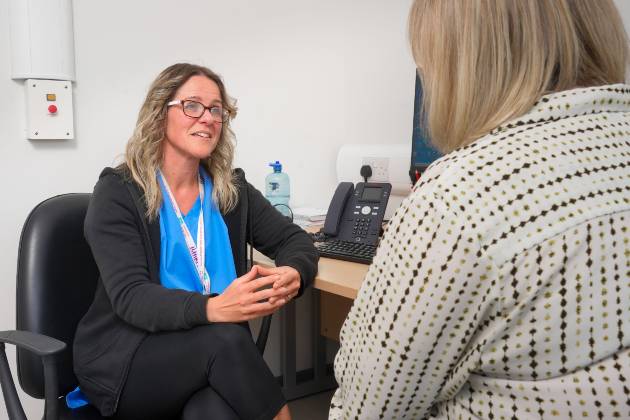Linda explains how her supporting overstretched doctors is bringing benefits for patients and staff
After 12 years as a health care assistant in rheumatology and outpatients, I wanted to do something different. Despite being full of self-doubt, I pushed myself to apply for a doctor’s assistant role – knowing that dreams remain dreams unless you take action.
That was two years ago and what a decision it was. I haven’t looked back.
The brand new role was introduced to try to ease the pressure on junior doctors in East Surrey Hospital, where I work. They often had to deal with last minute bloods or admin work on top of everything else. Exception reports detailing their long hours were constantly being submitted.
Ward rounds
I spend my day working mainly with two junior doctors. I do the ward round with them, alongside the registrar and consultant. There can be up to 30 patients to see each day so the follow-up work is significant.
During the ward round I write notes and afterwards sit with a junior doctor to create handover sheets and get jobs listed for the day.
I could be tasked with preparing a patient’s discharge notes or perhaps ordering an ultrasound scan. But I’m still very much involved in clinical work so I may also be asked to take a patient’s bloods or insert a cannula, which are both skills I’ve learnt in this new role.
The benefits of the role are really starting to become clear
I was the first doctor’s assistant in the hospital and as it was a temporary, trial role at first, I had to learn on the job. To build up my knowledge I spent time with the doctors and was never afraid to ask questions.
Now my role is permanent and two more doctor’s assistants have been employed by the trust. As an organisation we’ve learnt a lot in the last two years so they both spent two weeks with me before starting in their jobs.
My biggest challenge has been changing the perceptions of other staff who saw me as undertaking the same role as a health care assistant when I first started out.
I worked hard to help people understand what I do and now things are very different. The benefits of the role are really starting to become clear.
Organisational knowledge
One of the main advantages of having me doing this job is the consistency I bring. Junior doctors work on rotation so only ever work on the ward for four months at a time. Registrars change every year. The only permanent people in the team are me and the consultant.
In the summer I work with doctors straight out of medical school which, as you can imagine, is an especially anxious time for them.
I’m proud that I play a part in supporting our future doctors
I share my organisational knowledge which I’m sure brings benefits, not just for the multidisciplinary team, but for patients too. I really enjoy working with the new doctors. I see them coming in very nervous and worried about so many things but I’m able to watch them grow over the four months they work with me. I’m proud that I play a part in supporting our future doctors.
Patient’s advocate
Our patients can be any age, from children to older people. They may not even be on the surgical ward so the ward round takes me all over the hospital.
However, all these patients are having to deal with nerve-wracking surgical procedures so the most important thing I can give them is my time.
It can be really intimidating having doctors talking about you and patients often don’t fully understand the technical and medical language they use. I tell them not to worry and I’ll come back to explain – in simple terms – what the doctor meant.
I really hope the explanations I provide help improve the patient’s experience and reassure relatives too.
The doctors are really happy for me to take on this role because it gives them more time to undertake clinical tasks.
Nursing support
Despite my title, I’m very much part of the broader nursing team. With my role constantly changing and extending it’s so important to have the support of my nursing colleagues. There are already a number of things I do now that I didn’t do as a HCA, such as taking bloods.
I’m line-managed by a registered nurse, the surgical ward manager, with the consultant next in line. Between us we ensure patients get the benefit of having someone who works in both teams.
But both my nurse manager and the consultant make suggestions for new tasks for me to take on going forward, like working with nasogastric tubes and catheters.
I will of course be trained by registered nurses to ensure I’m competent before I take on any of these tasks.
I have a valuable and privileged role which I love
Recent press reports have been criticised for referring to nursing staff as doctor’s assistants. But I have a valuable and privileged role which I love.
The worst enemy of success is self-doubt so If you’re presented with an opportunity like I had, go for it and you too may transform your career.
Further information
Linda Shaddick is a doctor’s assistant at East Surrey Hospital, run by Surrey and Sussex Healthcare NHS Trust (SASH).








